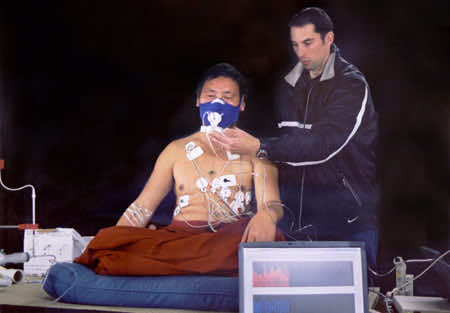The human body may seem fragile to us, but it is capable of doing great wonders. We are typically the most spoiled mammals ever requiring cooked food, clothes, clean water and can only live within a narrow temperature range. Although this is common knowledge, it doesn’t mean that human body is the most fragile thing ever created. In crisis, just like animals, human beings are capable of doing extraordinary things that normally wouldn’t be possible. But, the overpowering instinct to survive and adapt means that our brains are prepared to do anything to survive the dire times and deal with the repercussions only later. The drastic actions may affect our bodies permanently, but at least our primary objective of survival is complete.
You must have heard about such accounts in real life when the very life of a person is under threat. Here are some of the amazing things the humans can do when cornered into a tight situation:
1. Go without food up to TWO MONTHS
The human body can’t survive without water for more than a week, but it can survive just on water for up to 60 days with minimal or even no food intake. Not everybody can do that since it is common knowledge that metabolic rates vary from person to person but, all human bodies are programmed to go to extreme lengths just to make it to the end. I know what you think that we can’t survive without food for a few hours and how are we able to do it for sixty days, but human mind with its survival instinct tackles the situation very intelligently. It first burns every glucose molecule present in the nook and corner of the human body, then converts fat into ketones. If still no food intake is provided, the body starts to consume its own muscles and non-vital organs just to keep the brain alive! Amazing isn’t it?
2. Develop super strength in case of extreme stress
You must have heard the phrase, ” A cornered animal is a dangerous animal” and it is very true. Humans and even other animals are capable of committing acts of superhuman strength when being forced into extreme stress situations. We all have heard and scoffed at stories involving mothers who lift cars when their child is stuck beneath them. In 2013, two adolescent girls reportedly lifted a 3,000-pound tractor that had fallen on top of their father in a farming accident. This insane strength can never be tested in a laboratory conditions since this type of stress and condition cannot be induced with success. However, many scientists and biologists agree that we are capable of doing it. How much weight? We may never be able to tell. If it does, we have adrenaline and noradrenaline to thank for as they are responsible for controlling heart rate, perspiration, dilation of pupils and allows muscles to contract. In such a situation, huge amounts of adrenaline would be pumped into the blood stream that would allow more oxygen to get inside the muscles and facilitate the fast conversion of stored energy into fuel for movement. This provides the superhuman capability.
3. Regulate Body Temperature
As mentioned before, the human body can only function in a narrow temperature range. Too much heat or cold can affect our body performance, and we have to burn energy to keep it constant. But what about yogis and other mystics who claim to be able to control their body temperatures just by their meditation? Is it possible? A recent study suggests that up to a certain extent, our brains can control our body temperatures. In an experiment, Dr. Maria Kozhevnikov found out that a group of nuns were able to increase their core temperatures and the dry sheets around them with certain types of meditation techniques. This proves that brain can be stimulated and controlled in certain ways to control the body temperature just thought and believed by the mystics. There is no mythical stuff involved at all!
4. Be temporarily immune to pain itself
How many times you appear to have resurfaced from a collision or accident seemingly unscathed and afterwards, you notice tingling situations spread through your body that show the actual amount of damage. When you see that the lead guy in movies remains unfazed after a massive brawl, you scoff at the absurdity and ridiculousness of the idea, but this is entirely possible. The brain numbs the part associated with identifying pain with endorphins for the time being so that the situation can be controlled. Once again, it ranks survival on top of its agendas, and once you are away from the danger, the body relaxes and you discover pain again.
This is why many people lose consciousness sometime after the trauma because the brain has been doing all it can to keep the body alert. Now that the danger has passed, the body realizes the amount of blood loss or psychological trauma, and it is forced to shut itself down. This too is meant as a survival mechanism.






